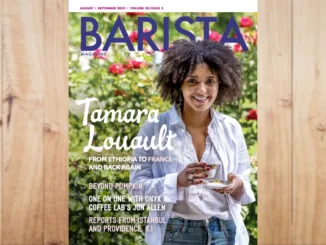
Last August, the Ethiopian government mandated that all coffee must be traded through the Ethiopian Commodity Exchange (ECX), eliminating direct trade with specialty coffee producers. In a recent paper, a writer in the Ethiopian Review examines this decision and its effect on the coffee market.
The author writes: “As it has now become apparent, ECX was not ready to accommodate trading operations of a complex global commodity when it embarked on coffee export. This partly explains why ECX has had to run into problems as soon as it started its coffee trade.”
Primarily the ECX was set up to work with grain commodities and help stabilize price and supply for foodstuffs. Because specialty coffee does not function as a typical commodity (buyers are looking for small, exquisite lots instead of bulk or lowest possible price) the mechanism of the ECX were not nimble enough to handle the needs of specialty coffee producers, exporters or foreign partners (roasters). This decision then to move all coffee trading to the ECX undermines specialty coffee, and leaves Ethiopian growers out of a quickly evolving and growing worldwide market. From the paper:
The global coffee industry is increasingly moving towards greater transparency of coffee origins and differentiation but the ECX system is heading in the opposite direction. Ethiopia is naturally endowed with the variety of coffees demanded by the Specialty coffee buyers. The fine quality of its coffees and the distinctive features of the sector, including its genetic resources, abundance of wild coffee trees, and the organic coffee production, earned Ethiopia a unique place in the global coffee marketplace. Ironically, instead of capitalizing on these unique attributes, ECX aims at bundling all of the coffees into commodity grades.
One possible explanation for this absurd strategy is ECX’s underestimation of the importance of Specialty grade coffees. œThe œspecialty-plus market segment is only 3.7% of the total coffees exported, with the remainder to be considered as commodity coffee,” says ECX in its whitepaper titled What is in a Bean?
This unsubstantiated analysis has led ECX to a mistaken conclusion, thus its decision to neglect the Specialty market and focus on aggregate coffee production.
Ultimately, the paper concludes that the current arrangement with the ECX is unsuitable for specialty coffee and is undermining Ethiopia’s potential market share by forcing mass commodity trading on its many fabulous regions and varietals which should each be treated as a part of the overall Ethiopian coffee “brand.”
If ECX were to be of any benefit to the poor farmers, it should create an environment where the bulk trading system functions alongside a direct trading system for Specialty coffees and other certifications such as Bird Friendly, forest, and organic coffees. This is a lifeline for many smallholder farmers and that is where they have comparative advantage over competitors.





